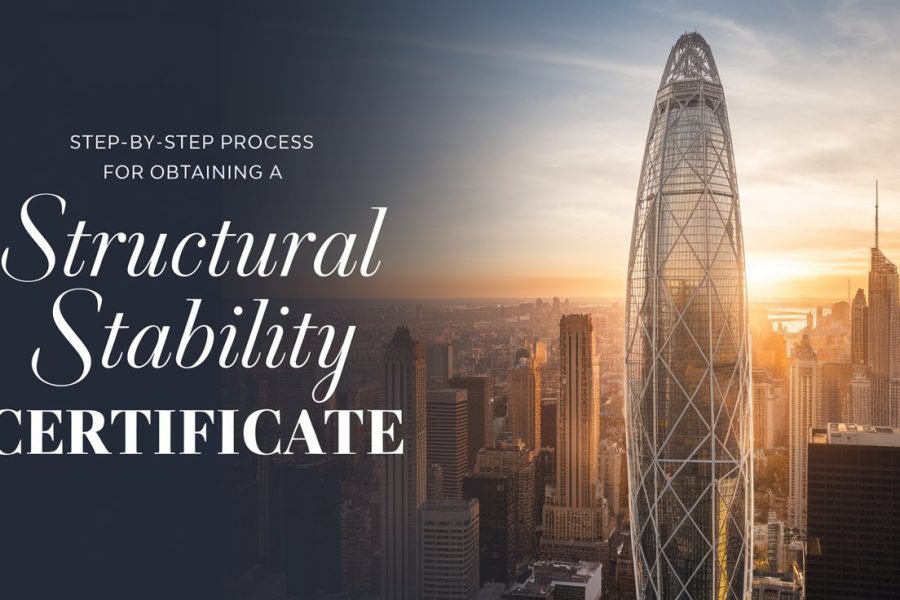A Structural Stability Certificate is an essential document that certifies a building’s strength, safety, and compliance with regulations. Whether for residential, commercial, or industrial structures, obtaining this certificate ensures that a structure is stable and fit for use. It is often required by regulatory authorities, insurance companies, and businesses before occupancy or renovation projects.
In this guide, we will walk you through the process of obtaining a Structural Stability Certificate, its importance, the necessary inspections, and how experts like IDDC India can assist you in acquiring one efficiently.
What is a Structural Stability Certificate?
A Structural Stability Certificate is an official document issued by a licensed structural engineer or an authorized agency. It verifies that a building or structure meets safety standards and is capable of withstanding environmental and operational loads without risk of collapse.
Why is a Structural Stability Certificate Important?
- Regulatory Compliance – Many local and national regulations require this certification for buildings to remain operational.
- Safety Assurance – It confirms that a structure is safe for occupancy, reducing risks associated with weak foundations or outdated designs.
- Legal Protection – Helps in avoiding legal liabilities in case of structural failure or accidents.
- Insurance Requirement – Many insurance providers require this certificate for issuing coverage.
- Property Value Enhancement – A certified structure increases buyer confidence and real estate value.
Who Needs a Structural Stability Certificate?
- Residential buildings (apartments, villas, gated communities)
- Commercial complexes (offices, malls, warehouses)
- Industrial structures (factories, manufacturing plants, power plants, ports, highways)
- Public infrastructure (bridges, hospitals, educational institutions)
- Renovation or extension projects requiring safety verification
Step-by-Step Process to Obtain a Structural Stability Certificate
Step 1: Hire a Licensed Structural Engineer
To begin the process, you need to engage a certified structural engineer or an authorized agency specializing in stability assessments, such as IDDC India.
Step 2: Site Inspection & Structural Audit
A comprehensive assessment of the structure is conducted, including:
- Visual Inspection – Checking for cracks, deterioration, and visible defects.
- Material Testing – Evaluating concrete, steel, and other building materials.
- Load Testing – Ensuring the structure can withstand operational and environmental loads.
- Foundation Assessment – Examining the integrity of the base structure.
- Soil Investigation – Conducting soil tests to verify stability and strength.
Step 3: Structural Analysis & Testing
The engineer performs advanced tests such as:
- Non-Destructive Testing (NDT) – Ultrasonic pulse velocity tests, rebound hammer tests, etc.
- Pile Testing – Integrity, dynamic, and static pile tests.
- Structural Stability Modelling – Using advanced simulation tools to assess stress points.
Step 4: Report Preparation
Based on the analysis, the structural engineer prepares a detailed report containing:
- Structural assessment findings
- Defects and risks identified
- Recommended repairs (if any)
- Certification details and compliance confirmation
Step 5: Submission & Certification Issuance
After the successful evaluation and submission of the report, the governing body or relevant municipal authority issues the Structural Stability Certificate.
Challenges in Obtaining a Structural Stability Certificate
- Old or Weakened Structures – Buildings with outdated designs may need modifications.
- Regulatory Hurdles – Local authority approvals may take time.
- Non-Compliance with Building Codes – Retrofitting may be required to meet safety standards.
- Improper Documentation – Ensuring all necessary documents are available is crucial.
How IDDC India Can Help
At IDDC India, we specialize in Structural Stability Certification for all types of buildings and infrastructure projects. Our expert services include:
- Inspection, Testing & Repair Systems for All Structures
- Architectural & Structural Designing with BOQs
- Pile Testing – Integrity, Dynamic & Static
- Soil Investigation & Structural Assessment
- Project Management & Compliance Services
Conclusion
A Structural Stability Certificate is vital for ensuring the safety, legality, and longevity of a building. By following the right process and engaging professional structural assessment services, you can obtain this certificate efficiently. Whether you need certification for a new or existing structure, IDDC India provides complete assessment and compliance services across Andhra Pradesh, Telangana, and Odisha.
Contact us today to schedule your structural audit and obtain your certification hassle-free.


